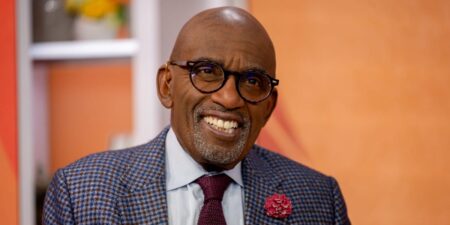This as-told-to essay is based on a conversation with Amber Duncan, founder of Life After Debt. It has been edited for length and clarity.
Before I declared bankruptcy, I thought I was doing everything right. My husband, Ryan, and I both worked in the mortgage industry. We had about a year’s worth of living expenses in savings, and about 40 rental properties that were generating cash flow. We were living within our means, but we also had lots of nice things: fancy cars, multiple homes, and a private school for our kids.
Then, in a day 2008, everything changed. When the banks stopped writing mortgages, the bulk of our income disappeared. Soon, many of our renters couldn’t pay their rent, which meant we couldn’t pay the mortgages on those properties.
Ryan and I realized we had no other option: we had to file for bankruptcy. It was completely humiliating and hard to fathom. We had been doing so well until everything was wiped off the table.
I made millions doing debt settlement
In court, the bankruptcy lawyer said something to me that I still can’t believe: “I’ll see you again.” I walked to my car, crying angry tears and vowing to prove him wrong.
Ryan and I moved into a rental and tried to regroup. We started a new company with our boss, helping other people settle their debts. I wanted to turn our hardship into an opportunity and help others. Our company settled debt for 42% of what was owed. The consumers paid us a 25% fee to do so. They ended up paying about 67% of what they owed, plus avoiding a lot of interest.
The business was immediately successful. When our landlord told us he would sell our house, Ryan and I could pay cash for it within a year. After two years, we were millionaires, and today our net worth is about $50 million.
I’ve rethought financial security and borrowing
Because of my experience, I think about financial security very differently than I used to. I start every day as if I’m at zero. I try to live below my means even now. We could have planes or multiple homes, but I never want my income today to impact my lifestyle going forward.
When I met Ryan, he was a saver, and he taught me how to make saving fun. I try to pass this on to others. One way is to track your daily spending and income and make it into a game. At the end of the day, determine whether you’re in the red or the green. Doing that for 30 days can really give you insight into your finances.
We now pay cash for almost everything. Following the bankruptcy, we had to do that since our credit was impacted for seven years. During that time, it became a habit. We no longer leverage the bank’s money. We recently took out a mortgage for a second home, but we put 50% down. Owning at least 50% of your properties is a smarter way to invest in real estate.
As a multimillionaire, I returned to college to finish my degree
Today, my kids are 16, 17, 19, 20, and 28. They’re all so different. My oldest daughter saw us go from famine to feast practically overnight. She thought it was easy and that everyone could do it. When she married a pastor, she was surprised to learn that most people weren’t making six figures every year.
I dropped out of college way back in the ’90s. When my kids started considering college, they’d look at me and ask, “Why do we need to go?” They could see that financial success could happen without a degree.
I would turn the question back on them: With parents willing to pay for college, why wouldn’t you go? You can succeed without a degree, but college can also be a gateway to great relationships and learning opportunities.
A few years ago, I went back to college and graduated in 2022. It was less about the degree and more about achieving my goal. I’ve shown that you can overcome financial hurdles without guilt or shame, then accomplish your dreams. It’s never too late to finish what you started.
Read the full article here
















